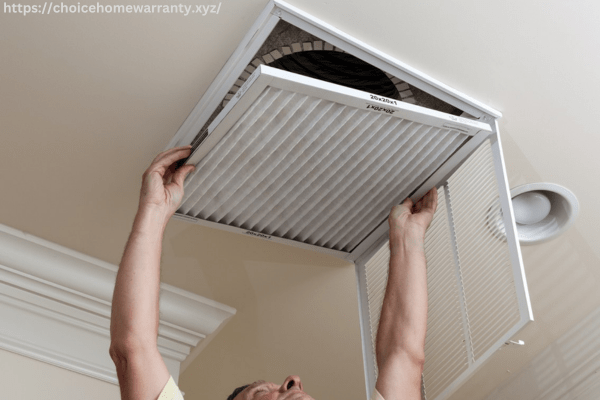Air filters work diligently behind the scenes, sifting through volumes of air to remove dust, allergens, and other pollutants. Their efficacy can wane over time, leading to a buildup of these contaminants which can then recirculate into your home’s indoor environment. The timeline for replacing air filters fluctuates based on variables such as allergies among household members, the number of pets, and external environmental factors.
Nonetheless, it’s recommended that standard disposable filters are replaced every 1-3 months while more high-end pleated filters last from 6 months up to a year. Here’s an interesting perspective – maintain control over your indoor air quality by pairing routine filter changes with seasonal shifts.
Replace your filter right before winter sets in or just as spring emerges; this synchronization not only enhances the heating or cooling system performance but also safeguards inhabitants from potential respiratory ailments during harsh weather seasons. By turning this chore into a recurring seasonal task -each swap becomes less daunting and ensures you live within a healthy atmospheric bubble.
What is an Air Filter
An air filter is a device that enhances the quality of the air by removing harmful particles and contaminants. In the digital age, where people are becoming more conscious of the quality of the air they breathe, it is important to understand the importance of an efficient air filter in your home’s HVAC system.
The what, why, and how of air filter maintenance are all covered in detail in this article. It walks you through the nuances of maintaining the purest possible air quality in your house and optimal performance from your heating and cooling equipment. The overarching objective is to ensure that you comprehend the significance of an air filter in maintaining optimal indoor air quality.
What Does an Air Filter Do?
As the first line of defense against a variety of airborne particles that may be harmful to your health, an air filter is essential to preserving the indoor air quality of your house. In addition to more hazardous dangers like germs and mold spores, it helps filter out typical contaminants like dirt and dust. This ensures that the air you breathe in your home is safe and pure.
The World Health Organisation states that there is a direct correlation between contaminated indoor air and several health problems, including heart disease, stroke, lung cancer, and chronic obstructive pulmonary disease (COPD). Therefore, understanding the wide spectrum of particles an air filter can trap – ranging from dust mites to pollen – further accentuates its vital role in fostering a healthier living environment.
Importance of Regular Maintenance
It is impossible to exaggerate the value of routine maintenance for your heating and cooling system. The state of the air filter in this system directly affects how efficient it is. Lowered performance and higher energy usage might arise from blocked or unclean filters. It can also result in health problems for the people using the facility.
This section further explores the specific maintenance needs for both disposable and reusable filters, providing a concise replacement schedule for reusable filters. Indeed, maintaining the quality of an air filter is essential to ensure the optimal functioning of a heating and cooling system.
Maximizing the Efficiency of Air Filters
Maximizing the efficiency of air filters requires more than just regular replacement. It entails making the most of your thermostat’s fan setting to maximize the efficiency of your air filter, which may greatly improve air circulation even in the absence of your heating or cooling system. A balance between inexpensive operation and pure air is ensured by energy efficiency considerations, which are also critical in this process. For best outcomes, it is therefore essential to recognize these aspects in order to get the most out of your air filter.
Signs of a Worn-Out Air Filter
Knowing when your air filter requires attention is key to preventing system problems and maintaining the quality of indoor air. Knowing when to replace your air filter will save you from experiencing problems like poor system efficiency and higher energy costs. It’s important to understand these symptoms and how they may impact your family’s health. Disregarding air filters can reduce the efficiency of your HVAC system and cause poor indoor air quality, which can be dangerous for the health of your family.
DIY Tips for Replacing Air Filters
It doesn’t have to be a terrifying task to change air filters on your own with these easy do-it-yourself instructions. This guide offers thorough, step-by-step instructions on how to replace disposable filters. It also offers useful instructions on how to change and clean reusable filters correctly. For a seamless, hassle-free DIY filter maintenance routine, make sure you have the required equipment and follow the essential safety precautions before you start. You can contribute to keeping your HVAC system long-lasting and efficient by taking good care of your air filter.
Choosing the Right Air Filter
The selection of an air filter is not as simple as picking the first thing on the shelf. In fact, it’s a nuanced process involving understanding MERV ratings and how they correspond to your specific HVAC system. The Minimum Efficiency Reporting Value (MERV) rates an air filter’s ability to capture larger particles between 0.3 and 10 microns, greatly impacting indoor air quality.
Ultimately, the right choice involves balancing filtration efficiency with airflow needs to ensure optimal system performance. For example, a filter with a very high MERV rating may capture more pollutants but can also restrict airflow, potentially decreasing your system’s efficiency or causing damage over time.
Hence, having knowledge about your HVAC system’s design and capacity becomes paramount in making appropriate choices that consider both health consequences and energy usage in your home. Extend the life of your air filter by following these best practices:
- Keep the surrounding area clean to minimize dust.
- Check for and fix any air leaks in your home.
- Consider upgrading to a programmable thermostat to regulate air circulation.
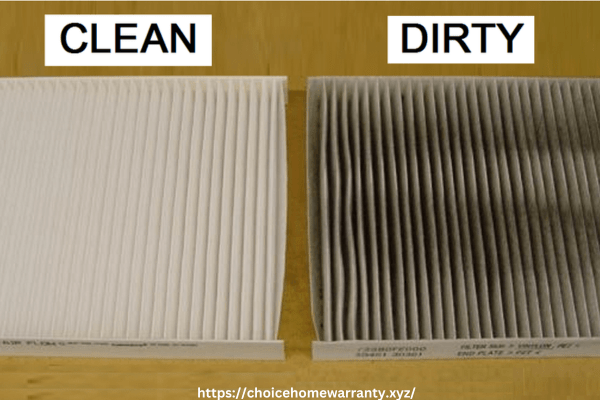
Air Filters
Common Misconceptions About Air Filters
Separating fact from fiction is crucial in maintaining your air filter effectively. There are common misconceptions about air filters that need to be debunked, as these might be prevalent among homeowners and can lead to improper care.
Misunderstanding the role and maintenance of air filters can shorten the lifespan of your HVAC system. Therefore, educating yourself about these myths surrounding air filter care is key to fostering proper maintenance habits and ensuring the longevity of your HVAC system.
Environmental Impact of Air Filters
Environmental consciousness is increasingly becoming a crucial aspect of HVAC maintenance, particularly concerning the environmental impact of air filters. Disposable air filters present significant disposal concerns as they contribute to landfill waste. Hence, adopting eco-friendly practices in maintaining reusable air filters becomes imperative for those committed to sustainability.
By making informed choices in your HVAC care routine, such as opting for reusable air filters and ensuring their proper maintenance, you can significantly reduce waste and contribute positively to the environment. Therefore, understanding the environmental impact of your HVAC system’s air filters is a critical step towards more sustainable living.
Air Filters at Home: What Types Are Available?
Since at-home air filters significantly improve air quality, they are crucial for maintaining a healthy environment. There are several types of air filters available, and each has unique characteristics that increase its effectiveness. These include, among other things, fiberglass, pleated, HEPA, and activated carbon filters.
The several alternatives available must be carefully considered in order to get the greatest indoor air quality because they differ in terms of lifetime and filtering performance. Thus, selecting the best air filter for your home may be aided by understanding the various types and how they operate.
TYPES OF AIR FILTERS
If we want the air inside our homes to be healthier and cleaner, selecting the appropriate air filter is essential. There is an abundance of air filter options on the market, each customized to meet certain needs and preferences. In order to assist you in choosing your air purifier wisely, it is essential to investigate the vast world of air filters.
Many individuals have severe worries about the quality of indoor air since we spend so much time indoors. Numerous pollutants, allergens, and even minute particles that are detrimental to our health may be found in the air we breathe. As a first line of defense against these hazardous airborne contaminants, air filters are becoming extremely important.
HEPA Filters: The Gold Standard
Because of their extraordinary effectiveness, HEPA filters—also referred to as high-efficiency particulate Air filters—are regarded as the gold standard in air filtering technology. These filters have the ability to remove 99.97% of airborne contaminants and capture tiny particles. HEPA filters are known for their longevity, frequently lasting many years before needing to be replaced, in addition to their exceptional degree of effectiveness. Thus, HEPA filters offer a very efficient and durable air filtering option.
Electrostatic Filters: Harnessing Static Electricity
Electrostatic filters utilize the power of static electricity in a unique way to effectively clean the air. These filters are made from a combination of cotton and paper fibers, which generate a static charge. The dust and dirt particles are subsequently drawn to the static charge, whereupon they become trapped on the filter screen and are kept from moving through the air.
AC units frequently have electrostatic filters, which come in two varieties: washable (which may be cleaned and reused) and disposable (which must be disposed of after use). As a result, an electrostatic air filter provides alternatives for simple maintenance or replacement in addition to maintaining air quality.
Fiberglass Filters: Affordable and Common
Fibreglass filters, commonly referred to as spun glass filters, are a prevalent choice for HVAC units due to their cost-effective nature. These filters are assembled by intricately weaving fiberglass together, forming an effective barrier against solid pollutants.
It’s crucial to remember that they are not as effective at filtering pollutants as their HEPA equivalents. However, fiberglass filters are a valuable choice for air filtering since they can efficiently block particles between the sizes of 3.0 and 10.0 microns.
Pleated Filters: Enhanced Filtration with Style
Pleated filters, aptly named due to the folded design of cotton or polyester fabric which creates pleats, combine enhanced filtration with style. This clever design increases the surface area available for filtration, thereby significantly improving particle capture efficiency.
Although these filters may come at a slightly higher cost, the benefits they offer outweigh this minor drawback. They exhibit extended durability and greater effectiveness in trapping irritants such as pollen, mold spores, and pet dander, making them an excellent choice for air filter applications.
UV Light Filters: Beyond Particle Capture
UV light filters offer more than just the capture of particles. They actively work to eradicate bacteria and viruses by emitting radiation, providing an ideal solution for those aiming to maintain an indoor environment free from these microorganisms.
The use of UV filters introduces an additional level of protection, guaranteeing that the air you breathe is not only devoid of particles but also free from harmful microorganisms. Therefore, integrating UV filters into your air filter system ensures comprehensive cleanliness and safety in your breathing space.
Carbon Air Filters: Odor Elimination Specialist
Carbon Air Filters are renowned as Odor Elimination Specialists. Although they aren’t usually used as standalone filters, they are frequently incorporated with other types of filters to tackle offensive smells. These unpleasant odors could be from food, garbage, tobacco smoke, or gaseous substances. Carbon filters excel in neutralizing and eliminating these odors, thereby making them an indispensable component in air purification systems.
Media Filters: Maximizing Contaminant Capture
Media filters, which maximize contaminant capture, are designed with a paper-like material folded inside a cabinet. This design provides an extensive surface area for capturing pollutants. Their effectiveness is especially pronounced in industrial settings where there are typically higher levels of pollutants.
A key feature of these media filters is their durability; they can function optimally for up to two years before needing replacement. This makes them an essential component in air filter systems, significantly improving the quality of air in such environments.
Washable Filters: Budget-Friendly and Reusable
Washable filters are a cost-effective and reusable option for air purification, coming in both flat-panel and pleated forms. They provide an economical solution due to their reusability, making them a budget-friendly choice for many consumers. Maintenance of these filters is incredibly easy, as they can be simply washed or vacuumed, depending on preference. This offers a sustainable method of keeping the air clean while also being friendly to your pocket.
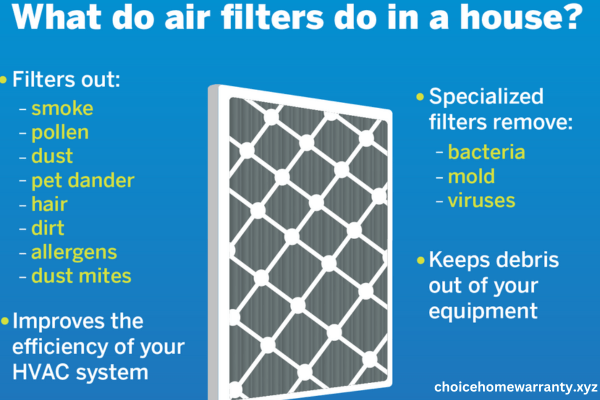
Common Mistakes to Avoid
Avoid these common mistakes in air filter maintenance to ensure your system works efficiently and effectively. One of the most prevalent errors is neglecting monthly checks; regular inspection helps identify any potential issues early on.
Additionally, using the wrong filter size is a common mistake that could lead to inefficient filtration and increased energy consumption. Lastly, ignoring signs of a dirty filter, such as decreased airflow or increased dust levels, can lead to severe damage over time. Regular and correct air filter maintenance is fundamental for optimal system performance. Avoid these common mistakes in air filter maintenance:
- Neglecting monthly checks.
- Using the wrong filter size.
- Ignoring signs of a dirty filter.
DIY vs. Professional Filter Replacement
While it is indeed possible to perform DIY changes on your air filter, opting for professional assistance can guarantee a higher degree of accuracy. If you find yourself unsure about the process or if you encounter any complications during the procedure, it would be wise to consider seeking professional help. The intricacies involved in replacing an air filter may require expertise, ensuring not only correct installation but also the optimal performance of your system.
Expert Recommendations
Experts highly recommend periodic consultations to address specific household needs, especially when it comes to air filter selection, maintenance, and troubleshooting common issues. These expert recommendations can provide valuable insights into choosing the appropriate air filters for your home, guiding you on how to maintain them effectively and resolving any prevalent problems. Enlisting professional advice ensures optimal air quality and extends the lifespan of your air filters.
When to Change Air Filters if You Have Pets
The air quality of a home determines its overall health. For pet owners, the fact that their animals have a significant influence on the air they breathe should go without saying. This article aims to discuss the ideal times to change your air filters specifically catered to households with pets.
Owning pets, while rewarding, also comes with certain responsibilities such as preserving the air quality within your home. Air filters are vital in this aspect as they capture particles and ensure that the air circulating in your home is clean and healthy. The importance of changing these filters regularly is heightened for pet owners due to increased levels of pet dander and fur present in the air.
Air Filter Changes for Single Pet Owners
As a proud owner of a single pet, it’s crucial to adjust your air filter replacement schedule. Typically, experts recommend changing the filter every 60 days. This frequency is designed to sufficiently account for the additional particles in the air that come from having a pet, without making your maintenance routine overly burdensome. It’s an easy and beneficial task that can significantly contribute to creating a healthier living environment. Therefore, thoughtful attention to your air filter can make all the difference.
Air Filter Changes for Multiple Pet Owners
For multiple pet owners or those with a pet that sheds excessively, it is necessary to change the air filter more frequently. Ideally, the air filter should be changed every 20 to 45 days in order to effectively handle the increased volume of dander and fur. Additionally, it’s suggested to regularly inspect the filter every week or two for any visible signs of dirt, discoloration, or debris accumulation. This proactive approach will ensure that your air filtration system operates optimally and maintains a healthy living environment.
Air Filter Changes for Allergy and Asthma Sufferers
For households in which any member is an allergy or asthma sufferer, a more stringent approach to air filter changes is advisable. Changing the air filter every 20 to 45 days becomes vital in reducing potential triggers that could aggravate such conditions. Moreover, choosing a filter with a higher Minimum Efficiency Reporting Value (MERV) rating is also beneficial.
Better filtration qualities of this kind of filter significantly improve the air quality, which is especially beneficial for those with respiratory sensitivity. Asthma affects one million children and four million people in the United States alone, according to current research. This figure emphasizes the vital connection between respiratory health issues and air quality, underscoring the significance of proactive air filter control.
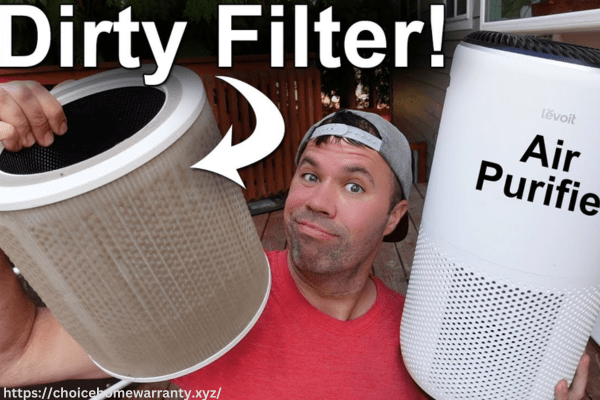
How Do You Install a New Air Filter?
Maintaining the optimal efficiency of your HVAC system requires routinely replacing your air filter. This simple yet essential practice is part of your HVAC system’s overall performance (heating, ventilation, and air conditioning). Air filters significantly contribute to maintaining the quality of indoor air by filtering out dust and allergens.
Regular replacement of these air filters ensures that the HVAC system operates at its peak efficiency. It prevents potential problems like reduced airflow and increased energy consumption which can ultimately lead to costly repairs or replacements. Thus, installing a new air filter is not only a simple task but also an effective measure in ensuring better performance and longevity of your HVAC system.
Step 1: Locate Your Filters
The first step to changing your air filter involves locating your filters. If your home is equipped with air return vents, it is probable that you’ll find your filters embedded in the walls or ceilings. The sizes and locations of these filters can vary significantly, particularly in larger homes that have multiple units installed. In some cases, the filter may be located within the primary air conditioning unit. These units are usually found in a home’s attic, crawlspace, basement or closet.
Step 2: Turn Off Your Unit
The second step in the procedure is to turn off your air conditioning equipment before changing the air filter. This is a crucial step because it prevents foreign objects like dust and other debris from entering the system and damaging it while it is being replaced. Remembering that an air filter is essential to maintaining the quality of the air means that keeping it in check will have a significant effect on the overall performance of your HVAC system.
Step 3: Access Your Filter
Step 3 involves accessing your filter. Begin by opening the air return vent panels, which can be done by manipulating the small metal levers typically found on such panels. In the case of HVAC units, you would need to locate the filter near the air supply unit. Upon opening, you will find the filter housed inside the unit. This is referred to as an air filter.
Step 4: Remove the Old Filter
Step 4 involves removing the old filter, which should be done with due diligence considering the potential accumulation of dust. Handle the old filter carefully to prevent any unwanted dispersal of dust and dirt. A useful tip during this process is to utilize the plastic bag from the new filter for disposal of the old one. Simply open the package of your new air filter and use its plastic bag to discard your old filter, ensuring a clean and efficient replacement process.
Step 5: Replace With the New Filter
Step 5 involves replacing the old filter with a new one. To do this, insert the new filter ensuring that the airflow direction arrows on it align with those on the old filter. It’s important to avoid forcing the filter into place. Instead, it should fit snugly into its designated spot without any need for bending. This is a critical step in maintaining your Air Filter system and ensuring optimal function.
Step 6: Close the Air Filter Holder
Step 6 involves closing the air filter holder. This task requires securing the air return grill or the HVAC unit’s filter slot and making sure that the locking levers are flush with the grill. Once this has been accomplished, turn the unit back on and carry out a thorough check for any potential issues. The focus of this step is to ensure proper placement and functioning of the air filter.
Step 7: Keep Track of Your Filter Life
Step 7 involves keeping track of your filter life. To make sure that you are maintaining regular replacements of your air filter, it is recommended to set monthly reminders on your phone. This will alert you when it’s time to replace your filter, ensuring optimal performance and air quality. Additionally, certain manufacturers offer apps that specifically provide tracking and reminders for filter replacements. These can be incredibly useful tools in the upkeep of your air filtration system.
Window Air Conditioner Filters
Window air conditioners come equipped with filters that play a crucial role in their efficient operation. To maintain these, one must turn off the unit, take off the front cover, and then clean or replace the filter depending on its current state.
Installing a new air filter is an uncomplicated but significant task that can optimize the performance of your HVAC system. Regular maintenance not only enhances indoor air quality but also boosts energy efficiency. This leads to a healthier and more comfortable living environment. Thus, the significance of an air filter cannot be understated.
Conclusion
Changing the air filters in your house is a simple yet important task that has a major influence on the overall health and well-being of your family. This could vary depending on a number of factors, such as the size of your home, the local air quality, and if you have pets or allergy sufferers in your household, even though it’s typically suggested to change them every 60 to 90 days.
By lowering airborne pollutants like dust, allergies, and germs, regular filter replacements provide cleaner, healthier indoor air. It improves the air quality while also increasing the efficiency of your HVAC system, which helps you save money on energy. Make it a habit to regularly inspect and change your air filters to create a healthier and more comfortable living environment. Never underestimate the value of constant maintenance!
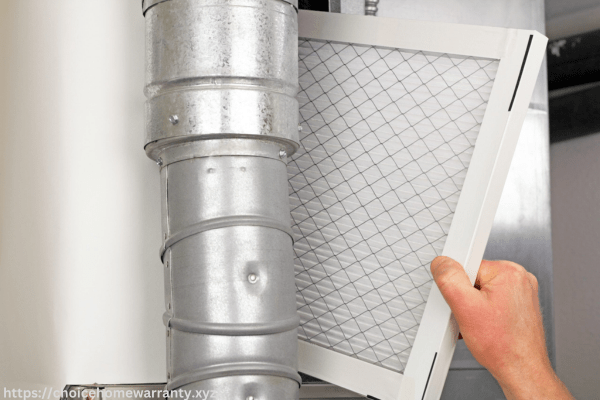
FAQs About Air filters
Can I use multiple types of filters together?
Yes, combining filters is possible and can provide comprehensive air purification by addressing different contaminants.
Are washable filters as effective as disposable ones?
Washable filters can be effective, but their efficiency may vary. It’s essential to follow the manufacturer’s guidelines for maintenance.
Do UV filters produce harmful radiation?
UV filters are designed to emit safe levels of radiation that are effective against microorganisms but pose no harm to humans.
Can I recycle old air filters?
Some filters, like pleated filters, can be recycled. Check with local recycling facilities for proper disposal methods.
How often should I replace my air filter?
It is advisable to replace your air filter every 1 to 3 months, depending on factors like filter type and household conditions.
Can I reuse a washable air filter?
Yes, washable filters can be reused, but follow the manufacturer’s instructions for proper cleaning and drying.
Why is it essential to turn off the HVAC unit during filter replacement?
Turning off the unit prevents dust and debris from entering the system, ensuring a cleaner replacement process.
Are all air filters the same size?
No, air filters come in various sizes, so it’s crucial to check and use the correct size for your HVAC system.
What happens if I don’t replace my air filter regularly?
Neglecting regular air filter replacement can lead to reduced airflow, increased energy consumption, and potential damage to the HVAC system.
How often should I change my air filter if I have one pet?
For single pet owners, it’s advisable to change the air filter every 60 days.
What if I have multiple pets? How frequently should I change the filter?
For multiple pets, aim for a filter change every 20 to 45 days to manage increased dander and fur.
Is a higher MERV rating necessary for households with allergies or asthma?
Yes, opting for a filter with a higher MERV rating is recommended for better air quality, especially for those with respiratory sensitivities.
Can I leave the filter unchanged if my home is not regularly occupied?
If your home is infrequently occupied, such as a vacation home, a filter change every six to 12 months may be sufficient.
How often should I replace my air filter?
Regular replacement is essential. For disposable filters, every 1-3 months is recommended, while reusable filters should be cleaned every 1-2 months.
Can I wash disposable air filters?
No, disposable filters are designed for one-time use. Washing them compromises their efficiency and can introduce contaminants.
What is the ideal MERV rating for residential filters?
For residential use, a MERV rating between 8 and 13 is recommended, balancing effective filtration with optimal airflow.
Are reusable filters more cost-effective in the long run?
Yes, while the initial cost may be higher, reusable filters prove cost-effective over time with proper maintenance.
